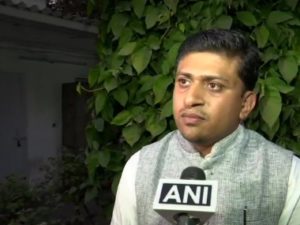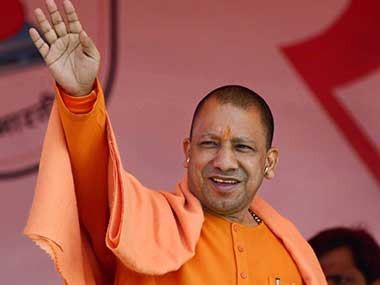Aljo Joseph has now become a part of the history of the Youth Congress, but not before creating history of sorts for the Indian National Congress.
His decision to appear as counsel to the middleman accused in the VVIP AgustaWestland chopper scam, Christian Michel, may have been taken in a personal capacity, but the fact that till Wednesday evening, he was heading the legal cell of the Youth Congress — which till recently functioned under the direct command of Rahul Gandhi — eventually ended up handing bags full of ammunition to the BJP to launch a blistering attack on the Congress leadership.
It does not matter that in a damage control exercise, the Congress promptly expelled Joseph from the party, and it does not matter that the lawyer-politician Joseph clarified that he distinguished between political and professional matters, and appearing for Michel was a professional matter for him. The fact remains that public perception around the issue had already been built. In the age of hyperactive social media, digital media and 24×7 broadcast media, news travels fast and a public debate is instantaneously unleashed.

Joseph claimed that he got “the brief” from one of his contacts in Dubai. By doing so, he further exposed the vulnerability of the Congress leadership, the Gandhi family and leaders close to it. The way this case has progressed since the time a possible bribery revelation was made — an Italian court passing judgments, a panicked reaction by the then UPA government in 2013 and early 2014 and a Dubai court ordering the extradition of Cristian Michel, resulting in his arrival in New Delhi and a city court sentencing him to five days of CBI custody for interrogation — has established that prima facie there was a bribery case.
The bribe-giver is now known, the names of bribe-takers have to be established by investigative agencies and proven in the court of law.
The case has similarities with the Bofors case, in which although nothing was proved in a court of law against the Gandhi family, public perception around the family’s close links with payoffs remains alive.
Consider the following: In March 2013, the then defence minister AK Antony had admitted that bribes were paid to swing the VVIP helicopter deal in favour of AgustaWestland. The CBI was asked to investigate the case. By the end of the year, an under-pressure UPA government cancelled the Rs 3,600-crore deal to supply 12 helicopters. Former Air Force chief SP Tyagi was one of the accused. The key question remained unanswered: Was Tyagi able to swing the deal in favour of AgustaWestland on his own or he was acting at the behest of or in collusion with someone at the top of the UPA’s political leadership?
Diary entries showed money transferred — besides the money paid to bureaucracy and Tyagis — to one “AP” and also to the “Family”.
So far nobody has any idea about whether “Family” meant the Gandhi family and whether “AP” meant Sonia Gandhi’s political secretary Ahmed Patel. These entries could mean any family and anyone with the initials AP, but the suspicion (as in the Bofors case) that top Congress leaders may have had a role to play, has been damaging for the party.
The 225-page judgment delivered by the Milan Court of Appeal in April 2016, in which Sonia was referred to as a “main driving force” was highly embarrassing for the Congress. The court had overturned the lower court’s order and sentenced Finmeccanica’s former chief Giuseppe Orsi to four-and-a-half years in jail and former CEO of Finmeccanica’s helicopter subsidiary AgustaWestland Bruno Spagnolini to four years for false accounting and corruption in the Rs 3,600-crore-plus deal to sell 12 VVIP choppers to India.
Securing the extradition of a British national from a third country, the UAE, is indeed a big achievement for the Narendra Modi government. It was reflective of the resolve and political will of the government to bring him to India. The government pitched it successfully on multiple fronts with the official establishment in Dubai, legal, political and diplomatic. The prime accused in the Bofors case, Ottavio Quattrocchi, could never be brought to India and so, the Michel extradition sets a new benchmark. The political sensitivities in the case, for Congress and the BJP, albeit for different reasons are very high.
Under the circumstances, Joseph’s appearance in a court to defend Michel was laden with varied implications. The BJP couldn’t let go the opportunity to link Jospeh, Michel and the Congress’ first family. The BJP argument may have lacked merit, but it was sustainable political rhetoric. The fact that the Congress leadership promptly swung in action, expelling Jospeh is indicative of the tension and panic in the main Opposition party’s ranks.
Joseph appears not to have learnt any lessons from Kapil Sibal whose appearance in the Supreme Court in December 2017 for a Muslim group to argue that the court should not hurry in hearing the Ramjanambhoomi site dispute case and that the hearing be postponed till July 2019 (after the Lok Sabha election and formation of next government) continues to embarrass the Congress. Sibal has since distanced himself from the Ram temple case, but Joseph has yet to express any such decision vis-a-vis the Michel case.
source: Firstpost.com







































